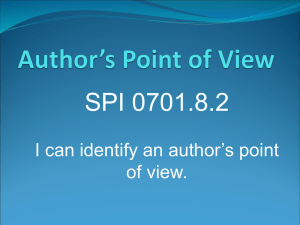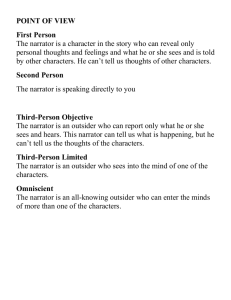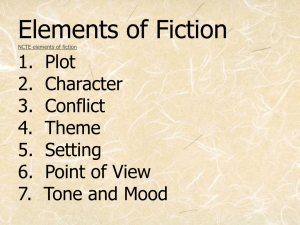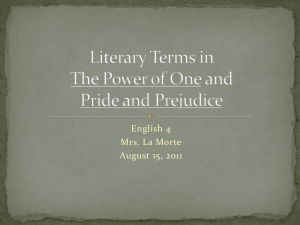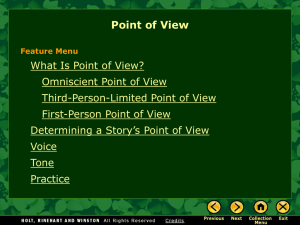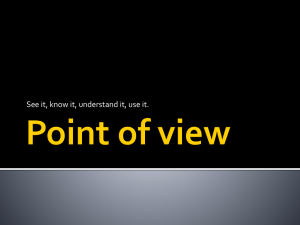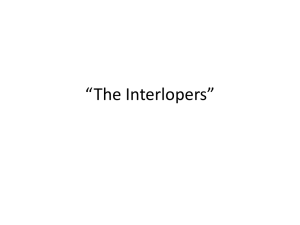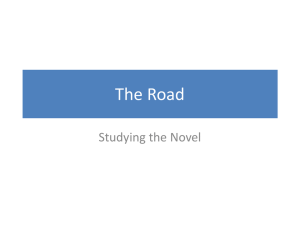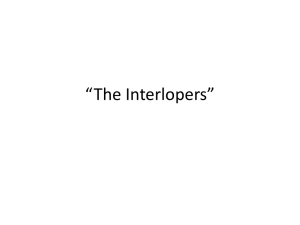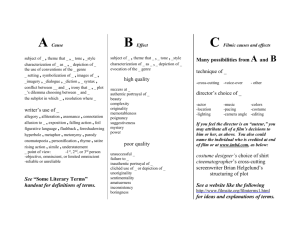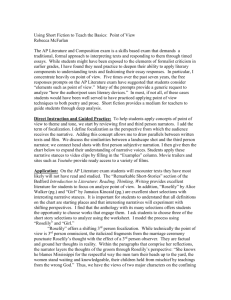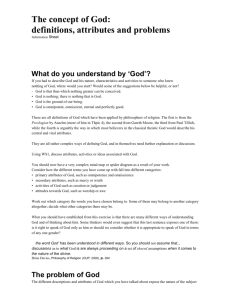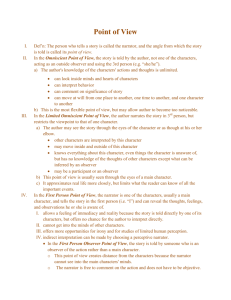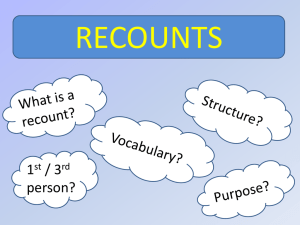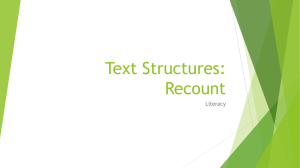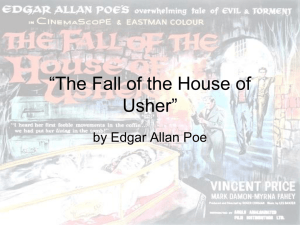Point of View
advertisement
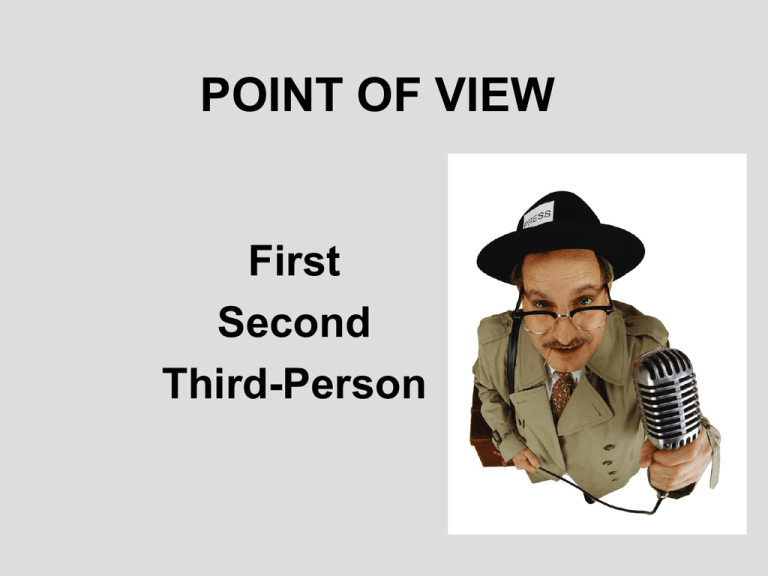
POINT OF VIEW First Second Third-Person Consider… • Two cars have just gotten into an accident. The wreckage is apparent. There is a sixteen-year-old female sitting beside her smashed up BMW. Beside her a confused eighty-five year old man steps out of his Buick Sentry. Neither is accepting the blame. You, a reporter, are the first to arrive on the scene. With a partner brainstorm a list of potential interviewees and stories that might explain the evidence. Car Accident cont… • Just as you might have discovered from the activity, there are several different perspectives from which a story could be told. • For example, the driver of the BMW, the driver of the Buick Sentry, any witnesses to the scene, and/or the police officer sent to report the crime are all potential perspectives to consider. I’ll Knock Your House Down… • Remember the story of The Three Little Pigs? Who can recount the story for the entire class? • Now raise your hand if you remember The True Story of The Three Little Pigs. Who can recount the story for the entire class? He Huffed and He Puffed and… • From which perspective was each story written? • How does perspective influence the story being told? • How does this relate to stories that we read in class? Let’s Get to the “Point” • In much the same way, writers use different points of view to tell their stories. • There are three primary types in literature: – First person – Third person limited – Third person omniscient First Person Point of View • In first person the narrator is part of the story. • They recount events from their perspective and observation point. • They use “I” and “me.” Third Person Limited • In third person limited point of view the narrator is NOT part of the story. • They use pronouns such as “they” and “he” and “she.” • They CAN only see inside the thoughts and attitudes of ONE or a LIMITED number of characters. Third Person Omniscient • In third person omniscient point of view, the narrator is NOT a part of the story. • They use pronouns such as “he,” “she,” and “they.” • They CAN see inside the thoughts and attitudes of ALL characters because they are “all-knowing.” What happened to second person? • Occasionally an author will employ second person point of view. However, this is a rarity. • In these cases, “you” is used as the narrator literally speaks to the reader. • An example of second-person would be a Choose Your Own Adventure story. Let’s Try it Out! • Read the following examples and determine whether first, second, third person limited or omniscient are being used. • "I could picture it. I have a rotten habit of [wondering about] my friends. We went out to the Cafe Napolitain to have an aperitif and watch the evening crowd on the Boulevard" (Hemingway,The Sun Also Rises). #2 • "Decide that you like college life. In your dorm you meet many nice people. Some are smarter than you. And some, you notice, are dumber than you. You will continue, unfortunately, to view the world in exactly these terms for the rest of your life" (Moore, “How to Become a Writer”). #3 • Murgatroyd met Madeline on New Year's Eve in 2002. He went to a party and she opened the door. Her hair! Only a goddess could have hair so fine. #4 • Murgatroyd met Madeline on New Year's Eve in 2002. He went to a party and she opened the door. Her hair! Only a goddess could have hair so fine. Madeline could not help thinking about him from the moment she saw him. His charming character drew her to follow him around the room. Answer Key • If you put them in order, you were right. – First Person – Second Person – Third Person Limited – Third Person Omniscient
